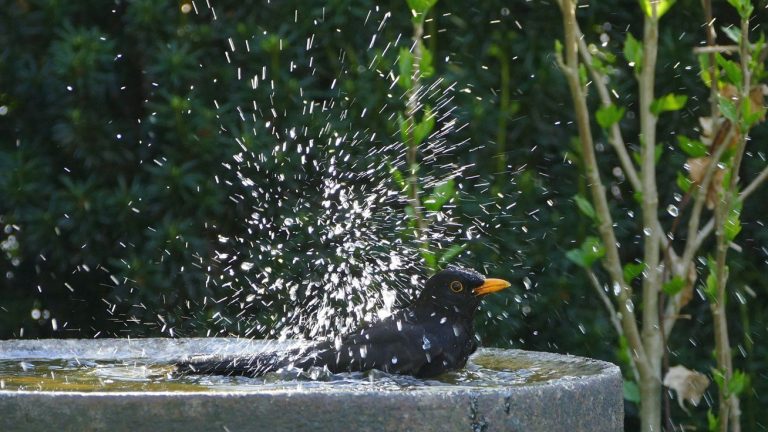Keeping Your Feathered Friends Cool and Comfortable: A Summer Guide to Bird Care
Summer’s heat can be challenging for our beloved avian companions. While we retreat to air-conditioned comfort, our birds require special attention to ensure their well-being during the warmer months. This comprehensive guide will equip you with the knowledge and strategies to provide optimal care for your feathered friends throughout the summer.
Summer Hazards for Birds: Prevention is Key
Summer presents several potential threats to birds. Understanding and mitigating these risks is crucial for their health and happiness.
1. Mosquitoes, Flies, and Air Conditioning: The summer months bring an influx of pesky insects. Consider planting mosquito-repelling plants like citronella around your bird’s enclosure. At night, cover the cage with a fine mesh to prevent insect bites. While air conditioning provides comfort for us, it’s crucial to avoid directly exposing your bird to strong air currents. Direct exposure can lead to feather damage, chills, and even death. Ensure good airflow without direct drafts.
2. Sun Exposure and Food Hygiene: If your bird lives outdoors, safeguard it from direct sunlight. Provide ample shade and ensure the cage is positioned to avoid harsh rays. Maintain impeccable hygiene regarding food and water. Clean and replenish food and water daily to prevent spoilage and bacterial growth which can lead to food poisoning.
3. Hydration, Diet, and Preventing Overheating: Birds require increased hydration and nutritional intake during hot weather. Double the usual food and water supply, offering fresh fruits and vegetables. Minimize or avoid meat and eggs, and completely abstain from supplements, as these can lead to overheating (“going up in flames” in avian terms) and digestive upset.
Summer Bird Care Management: A Holistic Approach
Providing excellent care involves proactive measures beyond addressing immediate threats.
1. The Significance of Insect Control: The dangers of insect bites are often underestimated. Mosquitoes, flies, and other insects can cause inflammation, swelling, and even infections like avian pox around the eyes, beak base, and feet (areas with less feather coverage). Implement rigorous insect control measures.
2. Cleaning and Enrichment: Incorporate regular outings into your bird’s routine. Choose cooler times of the day, such as early mornings or evenings, for supervised outdoor time. Afterward, thoroughly clean and disinfect the birdcage to maintain a hygienic environment. This also provides opportunity for enrichment, allowing your bird to experience different stimuli and sounds.
3. The Importance of Separate Housing: Following breeding season, separate male and female birds into individual cages. This promotes better health, reduces stress, and allows for adequate rest and recovery. If you have other pets, ensure complete separation to prevent unwanted interaction and potential harm.
Bathing Your Bird: A Refreshing and Healthy Ritual
Bathing is an essential aspect of bird care, providing both physical and mental benefits.
1. Bathing Methods: Offer various bathing options: a shallow dish inside the cage, a dedicated bird bath, or gentle misting with lukewarm water. Each method offers a different experience, and you can experiment to find your bird’s preference. Avoid submerging your bird completely, unless it is a species that naturally swims.
2. The Benefits of Bathing: Bathing is more than just cleanliness. It’s a form of exercise and a pleasurable experience. It helps remove dirt, dust, and parasites from feathers, and it moisturizes the skin, keeping feathers in great condition, and assisting with thermoregulation.
3. Optimal Bathing Environment: When bathing your bird outdoors, ensure adequate ventilation, sunlight, and a comfortable temperature. Avoid damp, shadowy areas prone to bacterial growth. Sunlight’s UV rays naturally disinfect, and also help to dry your bird quickly, reducing the risk of colds.
4. Maintaining Hygiene: If using a cage bath, ensure you meticulously clean and disinfect the cage and all accessories afterward. Thoroughly rinse off any cleaning solution to avoid residual chemicals.
Conclusion: A Partnership in Care
Providing exceptional bird care requires dedication and knowledge. By understanding the challenges presented by summer’s heat and implementing the preventive and proactive strategies outlined above, you can help your feathered friends thrive during the warmest months. Remember, regular observation of your bird’s behavior and a quick response to any unusual signs are essential components of responsible ownership. A happy and healthy bird enriches our lives immeasurably; let’s ensure theirs are filled with joy and comfort.

